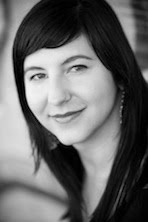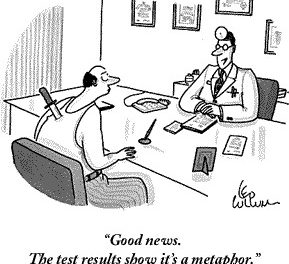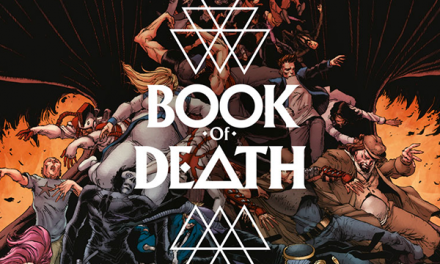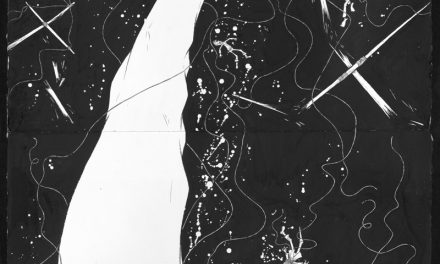CR staff member Don Peteroy is a curious guy. “Where are the fire extinguishers?” he asked us when he first came to a staff meeting. When he stopped by the office a few days ago, he wanted to know what we would do if we were walking down the sidewalk and someone threw a baked potato at us. When he lobs these loaded (with butter, sour cream, and chives) questions, we mostly hedge and then make an excuse about needing to go get the mail.
But Don’s put that curiosity to good use lately, asking relevant writers he admires some pretty irrelevant questions. Here’s the latest installment in his series, which we are delighted to host:
Melinda Moustakis was born in Fairbanks, Alaska, and raised in Bakersfield, California. She received her MA from UC Davis and her PhD in English and Creative Writing from Western Michigan University. Bear Down Bear North, her 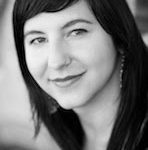 first book, won the 2010 Flannery O’ Connor Award in Short Fiction and was published in September 2011 by University of Georgia Press. Her stories have appeared in Alaska Quarterly Review, Kenyon Review, New England Review, Conjunctions, Cimarron Review, American Short Fiction, and elsewhere. She is currently a visiting professor at Pacific Lutheran University and was recently named a 2011 National Book Foundation 5 Under 35 writer.
first book, won the 2010 Flannery O’ Connor Award in Short Fiction and was published in September 2011 by University of Georgia Press. Her stories have appeared in Alaska Quarterly Review, Kenyon Review, New England Review, Conjunctions, Cimarron Review, American Short Fiction, and elsewhere. She is currently a visiting professor at Pacific Lutheran University and was recently named a 2011 National Book Foundation 5 Under 35 writer.
Question: Let’s say that a huge publisher is interested in giving you a $50,000 advance for your next work. But you must first pass the General and Literature Subject Exams—the dreaded GREs—before the book goes to the printer. They want a score of at least a 720 on both, including math. Also, if you expect them to promote your book, you’ll have to take the SAT again, and score 30% higher than you did last time. Any state exams that you took in high school, of course, would have to be taken again. They’ll be kind, though; they’ll give you a week to study, and a tutor at a reduced rate of $100 an hour. What would you do? Why or why not?
MM:
A) Every time I take a test, a moose shows up and eats it. Apparently, GRE tests taste better than bark. Must be something about all those bubbles you have to fill in. If the test is administered on a computer, the moose simply kicks in the screen.
B) It is my understanding, and the understanding of the state of Alaska, that GRE actually stands for Grizzly River Exam and SAT for Salmon Aptitude Test. The verbal portion of this GRE requires one to roar loader than a 720-pound grizzly while standing on a river bank. The math portion of this GRE requires one to calculate how many moose per second it takes to outswim a 720-pound grizzly across a river. As for the SAT scores, in the tradition of every storytelling fisherman and fisherwoman I have encountered, each salmon one catches is thirty percent bigger than the previous salmon in the previous version of the story of catching said salmon.
C) The answer to every question: Go fishing.
D) All of the above.
E) None of the above.
Brock Clarke (former Cincinnati Review fiction editor) is the author of five books, most recently Exley and An Arsonist’s Guide to Writers’ Homes in New England, which was a national bestseller and has appeared in a dozen  foreign editions. His stories and essays have appeared in the Virginia Quarterly Review, OneStory, The Believer, Georgia Review, Southern Review, have appeared in the annual Pushcart Prize and New Stories from the South anthologies, and on NPR’s Selected Shorts. He lives in Portland, Maine, and teaches creative writing at Bowdoin College.
foreign editions. His stories and essays have appeared in the Virginia Quarterly Review, OneStory, The Believer, Georgia Review, Southern Review, have appeared in the annual Pushcart Prize and New Stories from the South anthologies, and on NPR’s Selected Shorts. He lives in Portland, Maine, and teaches creative writing at Bowdoin College.
Question: Here’s what happens: some tech-savvy kid in Worms, Nebraska (a real town), creates a computer program called The Clarke-1. It writes Brock Clarke–like stories. The stories are completely indistinguishable from yours; so similar, in fact, that even the most enlightened Clarke scholars cannot tell the difference. Furthermore, the program’s coding mimics your metal processes to such a great extent that it knows what you’re going to write before you even write it. The kid produces a Clarke story every week and sends them, under his name, to all the great literary magazines. One day, you get in a magazine in the mail. You read a story by some kid in Worms, Nebraska. It happens to be the story you’ve been thinking about writing. You investigate; you comb through back issues of Tin House and Hudson Review and so on, and discover that this kid has written everything you’ve thought of writing. What, Brock, are you going to do about this?
BC: What I do is: I start thinking of a story in which a kid in Worms, Nebraska, creates a program called the Clarke-1, etc. And when the kid and his computer program begin to write a story that I’ve thought about them, they realize that a) the jig is up, or b) this computer program was even a more pathetic and navel-gazing pursuit than they’d thought possible. And when they realize this, they’ve not only created an exact replica of a Brock Clarke story, but they’ve also created exactly what it feels like to read and write a Brock Clarke story.

